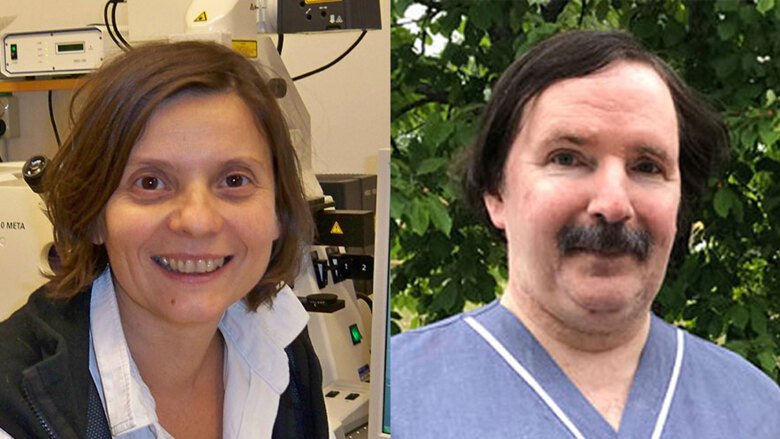KI researcher awarded 2.8 million dollar NIH Prime grant for drug targeting the opioid systems in alcohol dependence
KI researcher Professor Lars Terenius, in collaboration with two US groups, has been awarded a 5-year Prime Project Grant of 2.8 million US dollars from The National Institutes of Health, USA, to study how selected drugs affect the dynamics of opioid systems in Alcohol Use Disorders (AUD).

The team consists of:
- Professor Lars Terenius, Department of Clinical Neurocience at Karolinska Institutet
- Dr. Remi Martin-Fardon, Department of Molecular Medicine, The Scripps Research Institute
- Associate Professor Tijana Jovanović-Talisman, Department of Molecular Medicine, Beckman Research Institute City of Hope,
The multidisciplinary team will study how ethanol, the cause of AUD, affects the opioid system function at the molecular, cellular and organism level, using a valid behavioral animal model of AUD, cells in culture, super-resolution fluorescence microscopy imaging and fluorescence correlation spectroscopy. Further Co-PIs of this project are Vladana Vukojevic and Björn Johansson from the Department of Clinical Neuroscience at Karolinska Institutet and Alessandra Matzeu from The Scripps Research Institute.

New medications are needed
“Alcohol use is widespread in our culture and may lead to dependence in 5-10 % of the population. Few medications are available to assist the motivated individual to resist relapse into AUD during abstinence. The general opioid receptor antagonist naltrexone is registered under this indication, but is likely underused and not equally effective in all individuals. New medications are needed to allow more effective pharmacotherapy of AUD and to enable us to better address interindividual variation in response to treatment for AUD. In this project, the effect of naltrexone on the mu-opioid receptor and the effects of experimental compounds acting on the kappa-opioid receptor will be investigated at the single-molecule and nanoscale level in cell models and in animal models of alcohol craving and relapse,” says Lars Terenius who leads the project.
This NIH R01 Research Prime Project Grant, which is awarded in an extremely competitive program, builds on a larger front-line approach by the KI researchers to study molecular interactions at the single molecule level in living systems. The project can be linked to a joint effort at the Centre for Psychiatry Research (CPF) to visualize dependence and conditioned responses in the human.
